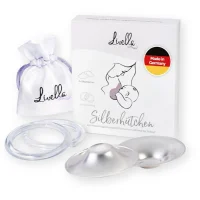Imagine you’ve just started thinking about starting a family. Maybe you’ve found the right partner, your career has stabilised, and you’ve made the decision: “Now would be a good time to have a baby.”
But then a diagnosis turns everything upside down: premature menopause.
This diagnosis can be a huge shock – many women initially feel overwhelmed and alone. The thought that your biological clock is already ticking, before you even had the chance to really think about it, often triggers feelings of grief, anger, and despair.
But you’re not alone – many women are affected, and there are ways to deal with the situation.
Emotional reactions to the diagnosis:
-
Shock and disbelief: The news often comes unexpectedly and hits many women completely unprepared.
-
Sadness and fear: The idea of possibly never becoming a mother is painful.
-
Anger and helplessness: “Why me? Why now?”
- Searching for answers: Many immediately start researching possible causes and treatment options.
It’s important to take these feelings seriously and allow yourself time to process everything. The first step is to get fully informed and seek support – whether from your partner, family, or through online communities
Table of content
Why Me? Understanding Premature Menopause
Possible Causes and Risk Factors
What Does It Mean for My Fertility?
Options to Still Become a Mother
Coping with the Emotional Challenges
Key Tests to Assess Fertility and Hormonal Health
Conclusion: Your Journey Is Unique – and Full of Possibilities
FAQs: Frequently Asked Questions About Premature Menopause
Why Me? Understanding Premature Menopause
Premature menopause means the ovaries stop functioning before the age of 40.
Normally, menopause begins around the age of 50.
This condition – called primary ovarian insufficiency (POI) – affects around 1 in 100 women and can have many different causes.
What Happens in the Body?
In the ovaries, eggs mature over time. With each period, a certain number of eggs are lost.
In premature menopause:
- Hormone production declines: Especially oestrogen levels drop significantly.
- Egg reserve diminishes: The number of remaining eggs is greatly reduced.
- Periods stop: Without enough oestrogen, ovulation can no longer occur.
Typical symptoms of premature menopause:
- Irregular or missed periods
- Hot flushes and night sweats
- Sleep disturbances and fatigue
- Mood swings and depression
- Vaginal dryness and reduced libido
When Is It Called Premature Menopause?
The diagnosis is made when periods have stopped for at least 12 months before the age of 40.
Symptoms often develop gradually, and many women initially only notice mild cycle disturbances or mood changes.
Visiting a gynaecologist can help clarify the situation through hormone tests and ultrasound examinations.

Possible Causes and Risk Factors
The reasons for premature menopause are varied and often unclear. Sometimes there is no obvious cause. However, some factors increase the risk:
Genetic Factors
- Family history: If your mother or grandmother experienced early menopause, your risk may be higher.
- Genetic anomalies: Conditions like Fragile X syndrome can contribute.
Autoimmune Diseases
- Ovarian attack: The immune system attacks the body's own tissues, including the ovaries.
- Common conditions: Hashimoto’s thyroiditis, Addison’s disease, and others can impair ovarian function.
Lifestyle and Environmental Factors
- Smoking: Smokers may experience menopause up to two years earlier.
- Underweight: A BMI under 18 can disrupt hormone production.
- Chronic stress: Leads to hormonal imbalances and can affect the ovaries.
- Environmental toxins: Substances like BPA in plastics may reduce fertility.
Medical Treatments
- Surgeries: Operations involving the ovaries can lower egg reserves.
- Chemotherapy: Cancer treatments often damage sensitive ovarian tissue.
- Hormone therapies: Some treatments, such as for endometriosis, can impact ovarian function.
Hormonal Disorders
- Primary ovarian insufficiency (POI): The ovaries stop working prematurely.
- Hypothalamic dysfunction: Disrupts hormonal signals necessary for reproduction.
What Does It Mean for My Fertility?
The diagnosis raises the crucial question: is pregnancy still possible?
The answer depends mainly on the remaining egg reserve and hormone production.
Why Natural Conception Becomes Difficult
With premature menopause:
- The number of eggs is drastically reduced.
- The remaining eggs may not mature properly.
- A lack of oestrogen disrupts the cycle and ovulation.
Even if a few eggs remain, these challenges often arise:
- Cycle irregularities: Without a regular cycle, ovulation is unpredictable.
- Egg immaturity: Eggs may not mature enough for fertilisation.
- Hormonal deficiencies: Oestrogen is vital for egg development and preparing the uterus lining.
Summary:
Spontaneous pregnancies are possible, but very rare. Success often depends on whether hormone therapy can reactivate the cycle.

Options to Still Become a Mother
Despite reduced fertility, there are several pathways today:
Hormone Therapy: Can It Reactivate the Cycle?
Hormone therapy with oestrogen and progesterone can stabilise the cycle and support egg development.
It’s most effective when a small egg reserve is still present.
Assisted Reproductive Technologies: What Are the Options?
In-vitro fertilisation (IVF) is one of the most successful options.
If no viable eggs remain, egg donation can be considered.
Egg Donation: How Does It Work?
Healthy eggs from a donor are fertilised with the partner’s sperm and transferred to the uterus.
Egg donation is a widely accepted family-building method in the UK, supported by organisations like the HFEA (Human Fertilisation and Embryology Authority).
Adoption and Foster Care: Other Fulfilling Options
Adoption and fostering provide the chance to build a family even without biological children.
Coping with the Emotional Challenges
Premature menopause can trigger an emotional rollercoaster.
Accepting these feelings is key to moving forward.
The Emotional Rollercoaster: Between Hope and Despair
- Grief: Mourning the loss of the idea of biological motherhood.
- Anger and helplessness: Asking, "Why me?" is normal.
- Shame and guilt: Some women blame themselves or feel their body has failed them.
- Fear about the future: Concerns about whether they will ever have a family.
- Confusion: Uncertainty about next steps.
How to Handle These Feelings
- Allow yourself to grieve.
- Talk openly – with your partner, trusted friends, or in support groups.
- Keep a journal to process your thoughts and emotions.
When Should You See a Doctor?
You should seek medical advice if you notice signs of early menopause or have difficulties conceiving.
Common signs include:
- Irregular or missed periods
- Hot flushes and night sweats
- Mood swings and sleep issues
- Reduced libido
- Vaginal dryness
Early diagnosis is crucial to explore possible treatments and fertility options.
Key Tests to Assess Fertility and Hormonal Health
AMH Test (Anti-Müllerian Hormone)
Indicates the number of remaining eggs.
Not affected by the menstrual cycle and provides a clear view of egg reserve.
Ultrasound Examination
Checks the ovaries and uterus for abnormalities that may affect fertility.
Blood Tests
- Oestrogen levels: Low levels indicate hormonal imbalance.
- FSH (Follicle-stimulating hormone): Elevated levels suggest reduced ovarian function.
- LH (Luteinising hormone): Imbalances between FSH and LH can hint at fertility issues.
Conclusion: Your Journey Is Unique – and Full of Possibilities
Premature menopause is a challenging diagnosis.
However, there are many paths to fulfilling your dream of becoming a parent – whether through hormone treatment, IVF, egg donation, or adoption.
Early support from specialists (gynaecologists, endocrinologists) and emotional support networks can help navigate this time.
Hope, patience, and self-care are key to managing the ups and downs.
Every woman's path is unique, and it's perfectly okay to take one step at a time.
Stay open to different possibilities, and remember: there are many ways to achieve motherhood, even if the road is winding.
FAQs: Frequently Asked Questions About Premature Menopause
What are the signs of premature menopause?
Irregular periods, hot flushes, sleep disturbances, mood swings, reduced libido, and vaginal dryness before age 40.
Can I still get pregnant after premature menopause?
It’s possible, but natural pregnancy is rare. Hormone therapy, IVF, or egg donation may offer options.
How can I find out if I'm experiencing premature menopause?
Consult your gynaecologist. Tests like AMH, FSH, oestrogen levels, and ultrasound can confirm the diagnosis.
Can stress influence premature menopause?
Yes, chronic stress can negatively impact hormone balance and ovarian function.
Is there a treatment to delay menopause?
While menopause can’t be stopped, hormone therapy can alleviate symptoms and stabilise the cycle.
What support is available for premature menopause?
Emotional support (therapy, support groups) and medical advice are crucial for coping and planning your next steps.
References
- https://www.menopause-gesellschaft.de/rund-um-die-menopause
- https://www.uksh.de/kinderwunsch-luebeck/FAQs+zum+Kinderwunsch/Fragen+und+Antworten+zur+Diagnostik/Was+bedeutet+die+Diagnose+_vorzeitige+Wechseljahre__-p-338.html
- https://www.tena.de/frauen/beratung-und-tipps/wechseljahre-tipps/vorzeitige-wechseljahre
- Listeriose und Toxoplasmose - Sicher essen in der Schwangerschaft (bvlk.de)
- https://www.frauenaerztinnen-oberkassel.de/vorzeitige-menopause-wenn-die-wechseljahre-zu-frueh-eintreffen/
















